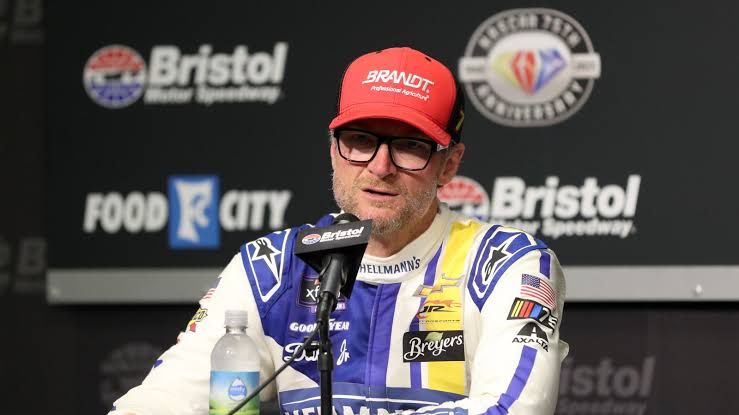Deadly Blow: NASCAR and 23XI Crisis Threaten Dale Earnhardt Jr.’s Team Ownership Dreams
Dale Earnhardt Jr.’s vision of NASCAR team ownership has hit a significant roadblock due to the skyrocketing costs and scarcity of charters, essential assets for team participation in the NASCAR Cup Series.
These charters, initially created to guarantee entry into races and provide financial stability, have now become costly barriers for prospective owners, even for someone as influential as Earnhardt. He has publicly expressed frustration over these inflated prices, acknowledging that the current market makes it nearly impossible for him to acquire a charter on his own.
Earnhardt’s desire to own a Cup Series team is deeply personal, with his goal being to field a car in the Daytona 500, a race where he has twice been victorious as a driver. Despite his ambition and legacy in the sport, the high financial entry point is a major hurdle.
The current dispute between NASCAR and 23XI Racing, centered around the value and control of charters, adds further complexity. Teams have started to view charters as franchises, akin to owning a professional sports team, which was not NASCAR’s original intention when the system was established.
For Earnhardt, team ownership isn’t just about competing; it’s also about nurturing new talent and ensuring the sport’s long-term health.
His JR Motorsports (JRM) organization has long been a breeding ground for up-and-coming drivers, and owning a Cup Series team would expand this legacy. However, with escalating charter prices and complex negotiations, even a figure as prominent as Earnhardt is finding it difficult to navigate these financial waters.
Despite these challenges, Earnhardt remains optimistic about the possibility of becoming a team owner in the future. His ongoing discussions with other team owners and influential figures in motorsport, including Mario Andretti, reflect his continued pursuit of the dream.
However, the longer the stalemate over charters persists, the harder it will be for newcomers to break into the upper echelons of NASCAR, threatening the diversity and competitiveness of the sport.
While his aspirations remain alive, the path forward is uncertain. It’s a delicate balancing act between honoring the sport’s traditions and navigating the modern financial realities of NASCAR ownership.
Whether or not Earnhardt will realize his dream of entering a car in the Daytona 500 as an owner remains to be seen, but his commitment to the sport and its future is unquestionable.
















































